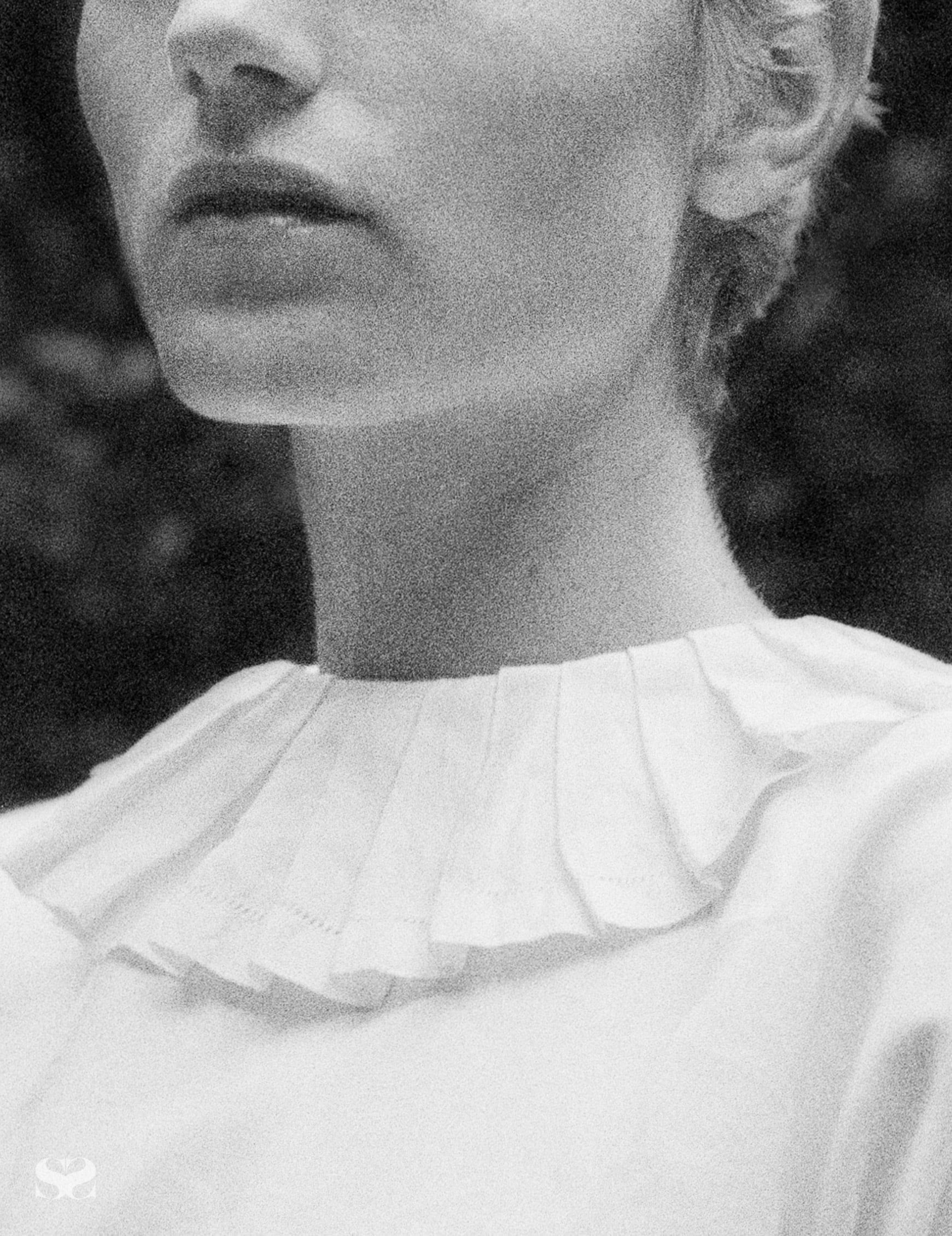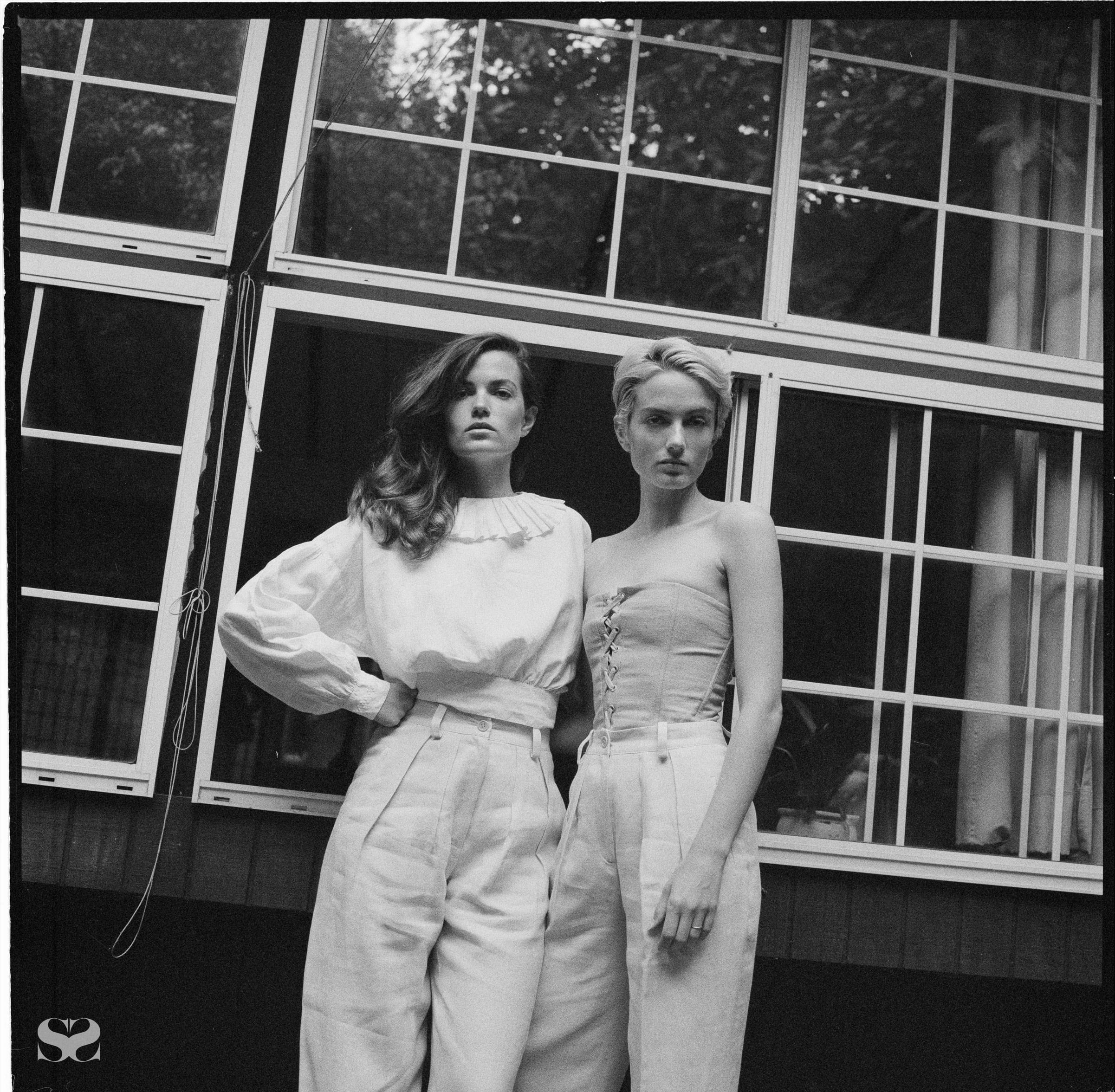
Your life is your art, according to Kilbey sisters Miranda and Elektra. Together, the twins make up Swedish-Australian outfit Say Lou Lou, and behind their dreamscapes in song lie many layers of history shared.
Growing up between Sydney and Stockholm, Miranda and Elektra learned early on of the nomadic lifestyle musicians grow accustomed to on the road – and that your art never really begins or ends with your work.
Among their most influential teachers were their parents, Steve Kilbey of Australian band the Church and Karin Jansson of Swedish new wave outfit Pink Champagne. But the two have far more than family and physicality in common.
One gets the impression they are soaking up just as much as they possibly can from this world – the endless skies of their childhood spent in Australia; the sense of social consciousness that’s abundant in their second home of Sweden; and the untapped depths of designer vintage in their newfound home of L.A., where they’ve been preparing for the release of their intoxicating new album, Immortelle - released October 26.
This record is theirs alone; not the music that anyone else wanted them to make. And that sense of integrity shines through in the raw honesty of each track. After inviting RUSSH into their home studio in Beachwood Canyon, the Kilbey sisters sat down to reflect on all that’s led them there.
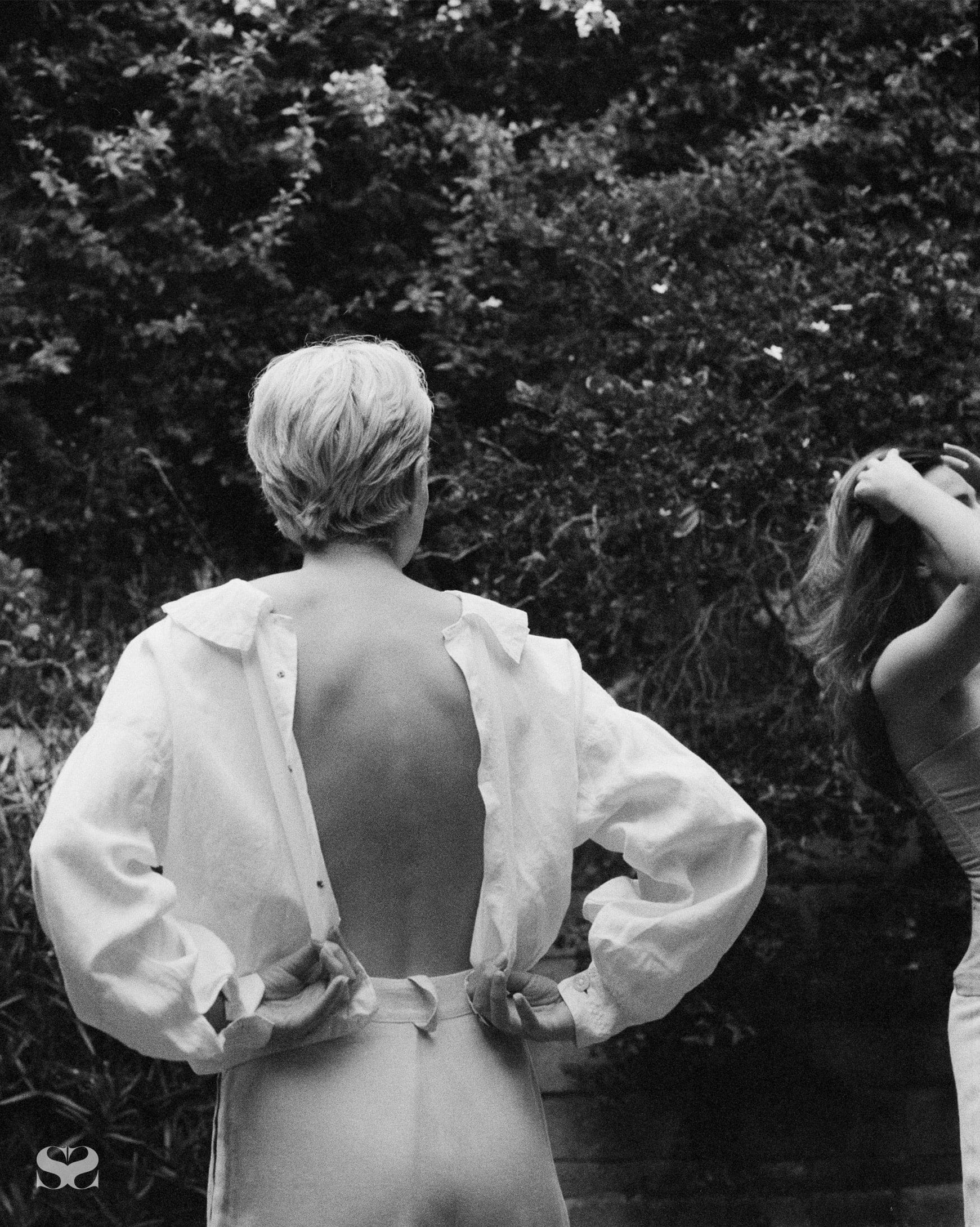
“Growing up, we were adamant about not being like our parents – no bohemian nonsense; we just wanted the nine-to-five.”
“ – But here we are, just like our parents.”
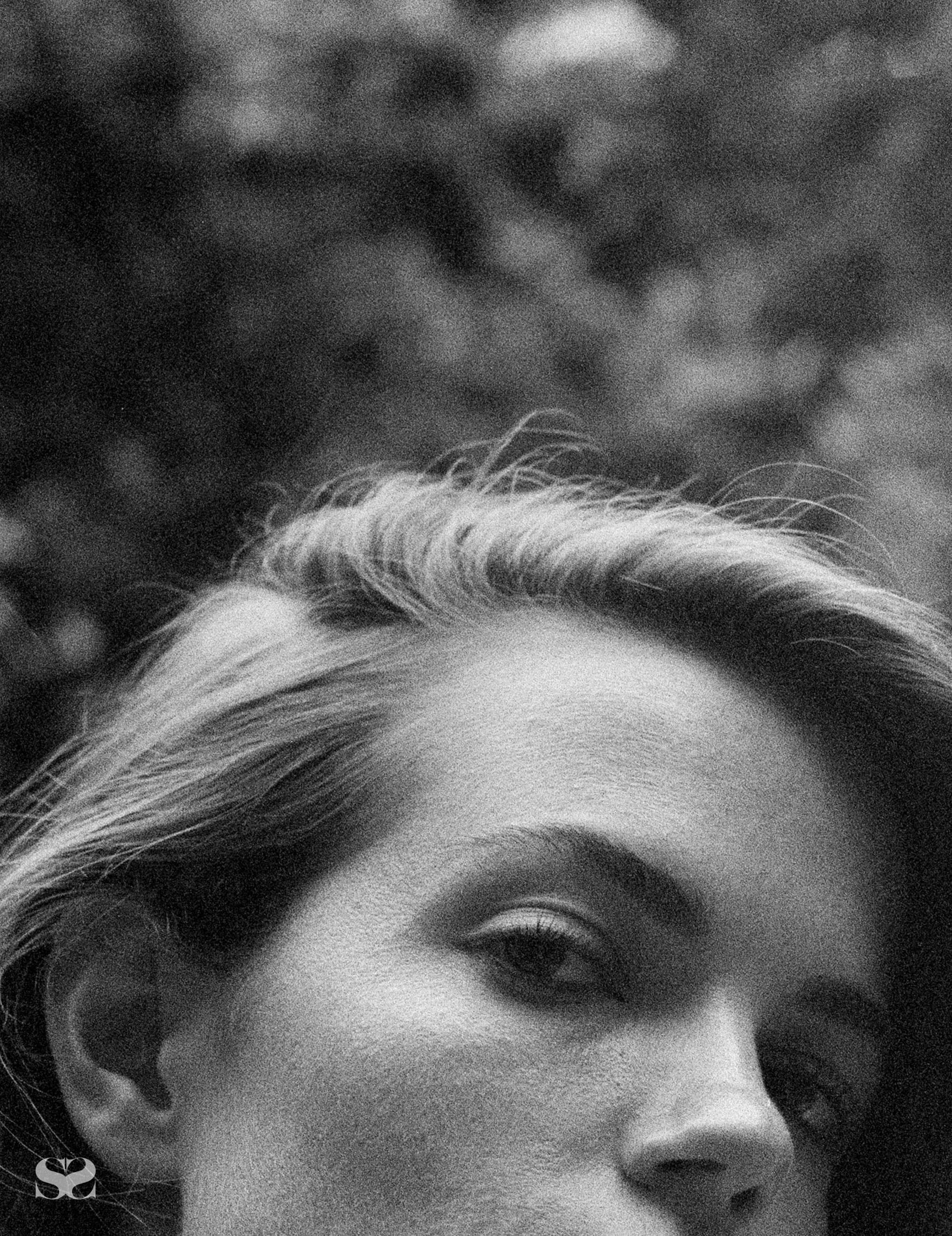
Miranda: Let’s go back to the beginning – to where we grew up and what it was like. How would you describe our family history, Elli?
Elektra: Well our mother is Swedish and our father is Australian. They lived together in Sydney when we were born. Our parents and all of our uncles (on both sides) were either musicians or worked in theatre – so we come from a collision of Swedish / Australian creativity. Our parents were both in prolific niche bands and met on tour in the 80s, but they split up when we were three. So we went to school in Stockholm with our mother and spent all of our holidays in Sydney with our father. We were always missing someone on the other side of the planet.
Miranda: Or some place as well. Like I really miss that the skies feel so big in Australia, and the switched-on nature of Swedish people. I would say that our hearts and minds were definitely torn down the middle, but also enriched by being immersed in two different cultures and by experiencing polar-opposite family dynamics.
Elektra: Yes, because when we were six, our mother married a Swedish man with three children and then when we were eight, our dad remarried an American woman who had another set of twins and a baby girl. So we have grown up in a complicated yet loving Brady Bunch situation.
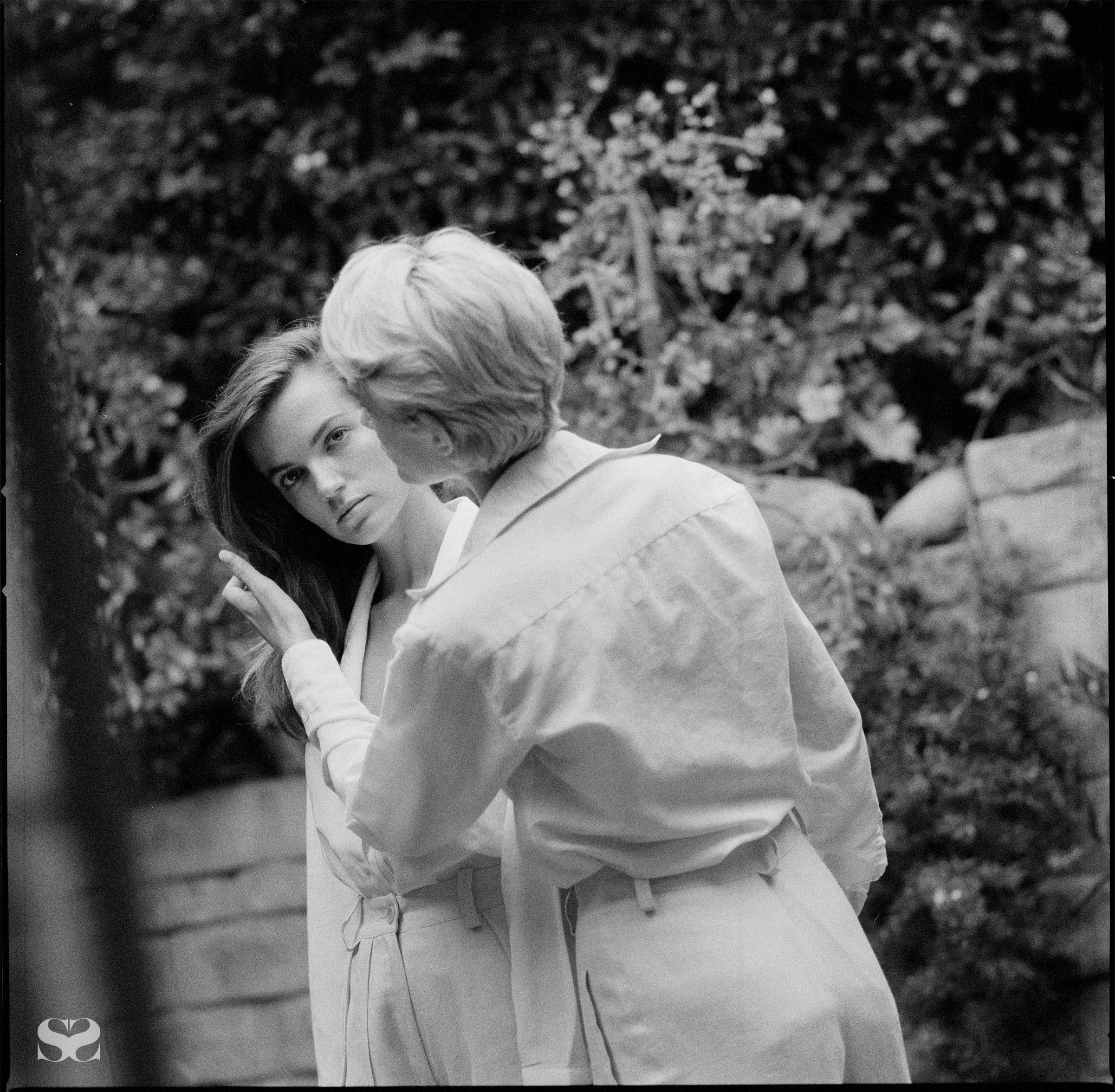
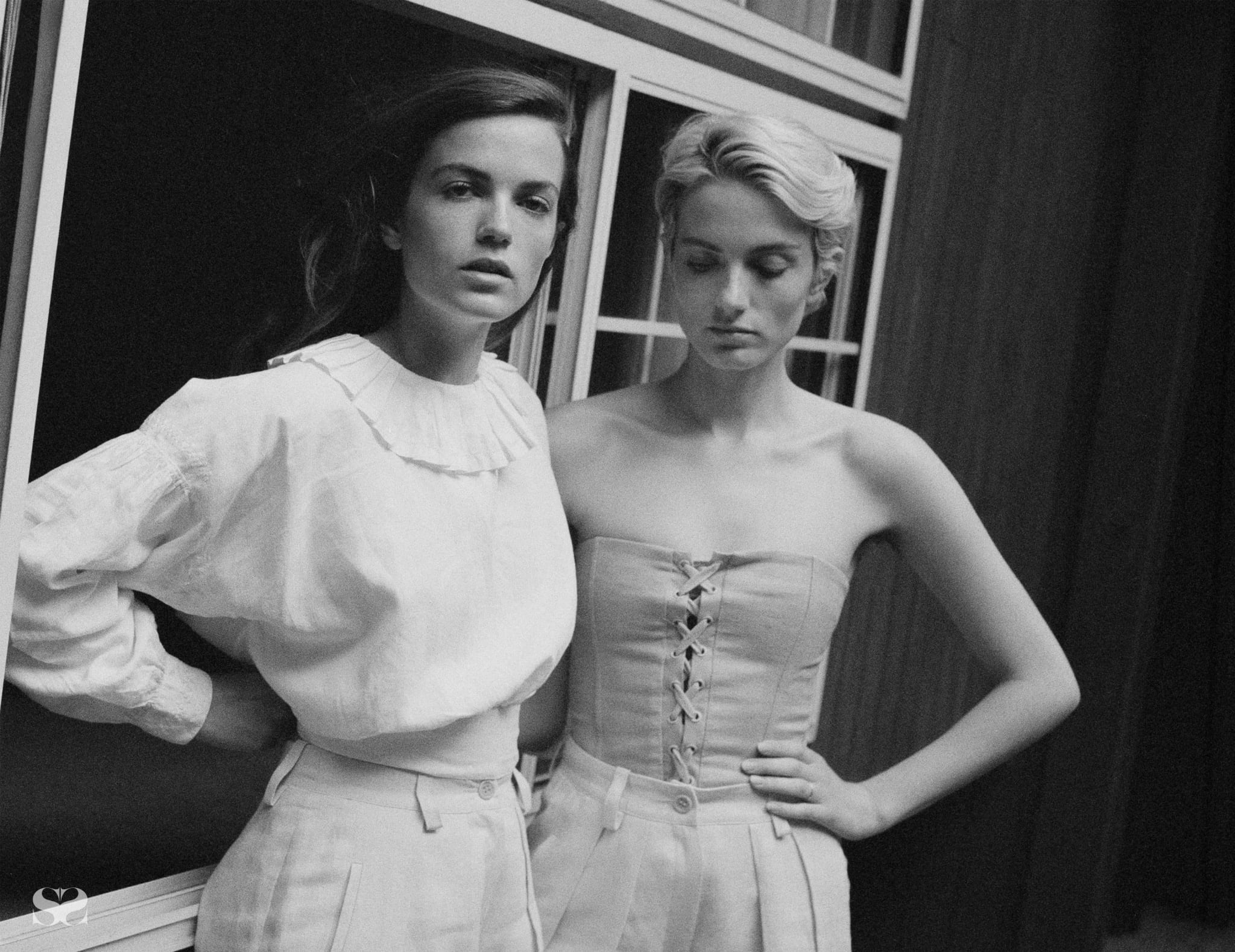
Miranda: What would you say that we have learnt from our parents?
Elektra: Integrity in your art. Which is not the easiest thing, when you have to live in the world and be part of some sort of industry.
Miranda: Yes, absolutely. I would also say that we have learnt your life is your art. So how you live, how you dress, how you eat and how you treat other people is a really big part of how you practise your art.
Elektra: Yeah, I think we are definitely getting closer now, to achieving a sense of integrity in our art.
Miranda: What do you think our parents taught us beyond the creative process?
Elektra: Our mother has been such a nurturing and yet ‘no bullshit’ parent. She is great at creating ambience through interiors and food, and can make anywhere feel like home. I would say that our morals, sense of loyalty and work ethic come from her.
Miranda: We didn’t see our father as much growing up, but he is a hyper-creative and art-focused person – so every interaction was centred around music or intricate performances. He gave us a lot of creative nurturing and intellectual stimulation, I would say.
Elektra: Do you think this has influenced our own creative paths today?
Miranda: Well I don’t really see Say Lou Lou as an active career choice, actually. It has been more of a natural development in many ways. Growing up, we were adamant about not being like our parents – no bohemian nonsense; we just wanted the nine-to-five.
Elektra: But here we are, just like our parents – always missing the ones we love, with very little certainty, and trying to find sustainability in our ever-changing projects and fleeting opportunities. Then again, we are so immensely lucky that we get to express ourselves and let our creative discovery be our profession.
“We have learnt your life is your art. So how you live, how you dress, how you eat and how you treat other people is a really big part of how you practise your art.”
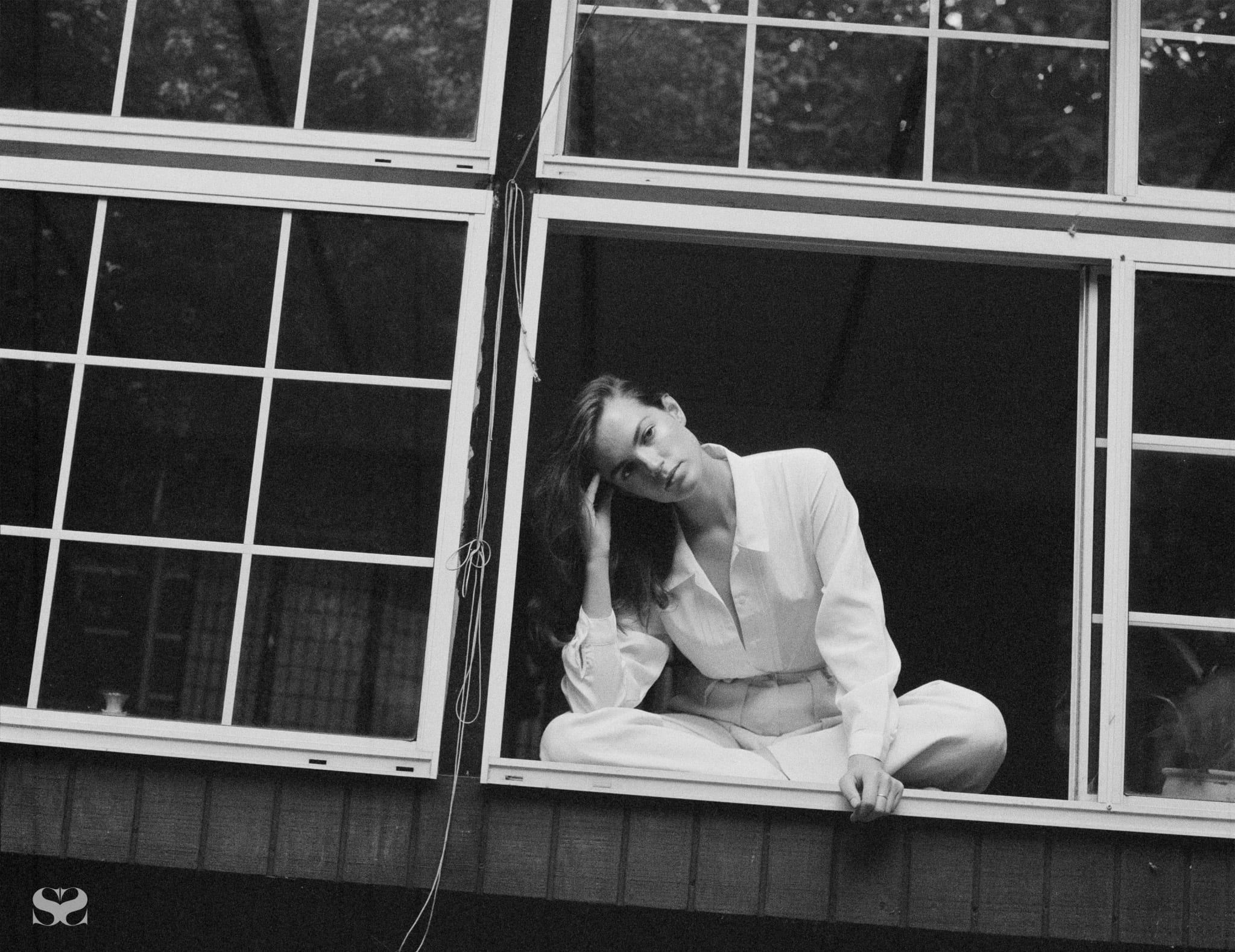
Miranda: How would you describe your relationship with music now?
Elektra: It is a form of communication. It’s a way of understanding others and explaining the unexplainable.
Miranda: OK, let’s talk about Immortelle, then. What were you inspired by when making the album?
Elektra: Musically I was inspired by film soundtracks and scores, especially from film noir. And I would say we were also inspired by nineties trip pop and just being in Laurel Canyon, the home of classic rock ‘n’ roll.
Miranda: I was inspired by French electronic music, too, because we were listening to a lot of Air. We’ve always loved Air, but we definitely studied their style in terms of production for Immortelle. Just the way they make synths sound so warm and organic – rather than something that feels cold and artificial.
Elektra: Do you find yourself feeling inspired by life in L.A. as well?
Miranda: Yeah, I think there’s a really good energy going on here right now – a sense of community and activism. There are a lot of new and interesting people around, so that creates a good vibe. And we just live in a really beautiful spot – it is so green where we are in Beachwood.
Elektra: Do you like having our studio at home, too?
Miranda: Yes, it makes me feel like we’re in a little bubble. I think it’s much easier to focus on what we’re doing here, because we don’t really need to leave. We are always in the zone and I don’t think we break the spell as much as we did when we were living in Stockholm or London.
Elektra: How did we create that spell with Immortelle, do you think? Aside from drinking and getting stoned a lot [laughs]?
Miranda: Well besides doing those things, we have also been trying to do a lot of yoga and getting into Transcendental Meditation as well. So countering the highs with something a bit more profound, I guess.
Elektra: I think it was also about the people we surrounded ourselves with, don’t you agree?
Miranda: Absolutely. We wanted to work with a really small group this time. We didn’t want to have too many people or opinions come in and we didn’t want to show the album to other people before it was ready. So I think that was a really big part of the process – especially the rule we created for our co-writers and producers, which was to abandon any possessiveness. No referring to ideas or concepts as ‘mine’ or ‘yours’, because ownership creates so much defensiveness and friction.
Elektra: Yes, that was key, I think.
Miranda: Besides the music itself, what did you want to achieve with Immortelle, when we first started making the album?
Elektra: I wanted to do something serious and suave. For me, this project was very musical and bombastic. So I wanted to work on something more womanly and mature, rather than girly.
Miranda: I think that has even been reflected in the way we are dressing right now.
Elektra: ... And we both recently changed our hair.
Miranda: But I would say that, even though we more or less share a wardrobe, the way we approach style is also quite different. Especially because I have short hair now and you have long, luscious hair. It just looks different.
Elektra: Yeah, I think we automatically carry it differently.
Miranda: I tend to always have more of a tomboyish or masculine touch to what I’m wearing, even when I do wear classically feminine styles.
Elektra: And we both love wearing suits or two pieces, with matching tops and bottoms. But it just looks different, depending on who is wearing it.
Miranda: I think this is partly because we have always seen things through a very different lens. We have totally different temperaments and ways of seeing. As soon as we started year three in different classes and going to different schools – having our own friend groups and interests – our dynamic has changed and evolved. You had more friends and started going out much earlier, while I was a bit of a late bloomer and liked to do my own thing.
Elektra: I think our experiences have definitely been different, but also quite similar, because we are twins.
Miranda: Well growing up a twin is totally different to other siblings – who remember shared events completely individually. This is because their cognitive abilities are at such different levels and this can create discrepancies and conflict. We have always been at the same level, internalising our family history and trauma exactly the same way. This makes our bond so strong. Would you agree that we tend to write those personal stories down through song?
Elektra: Definitely. Through every choice of melody, music, sound and structure. Every song is a reflection of a process we have been through.
